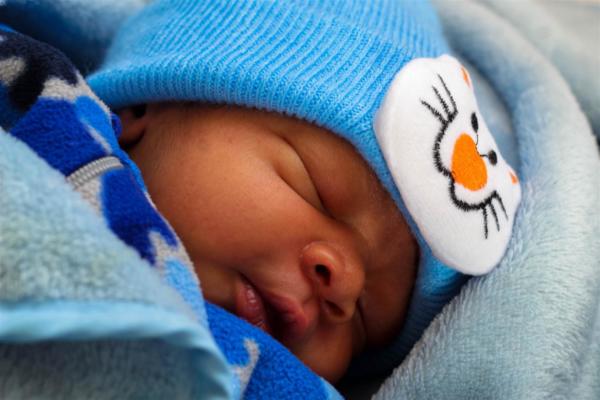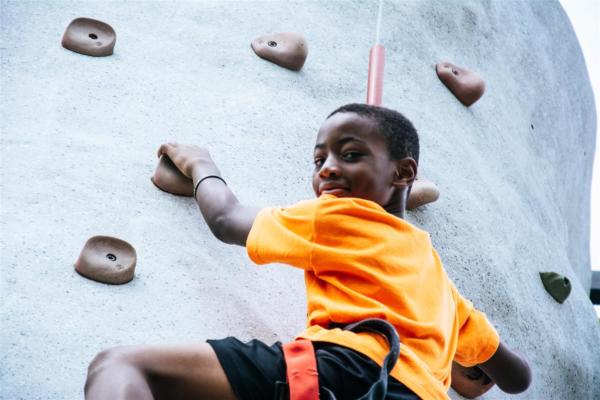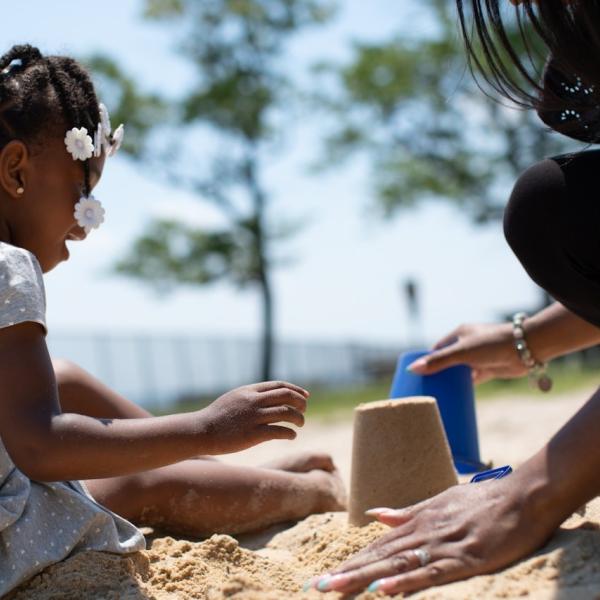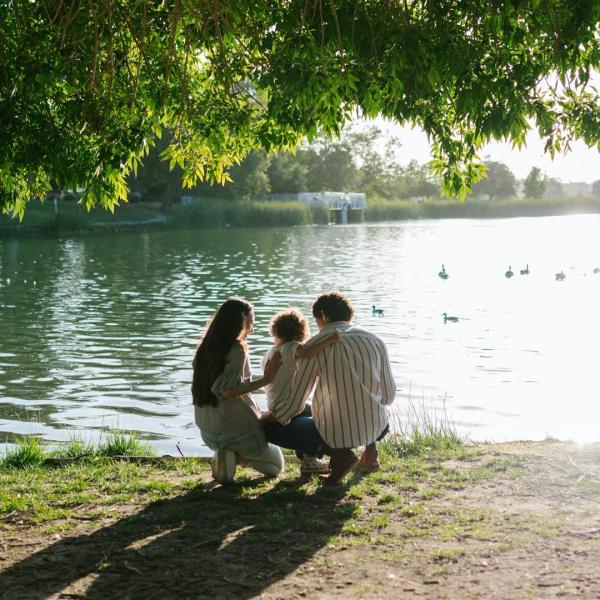Long-term fostering- Foster Care Fortnight
Isobel shares her experience of long-term foster care
Long-term or permanent foster care provides a long-term placement for children. Not all children who cannot return to their birth family should go on to be adopted and some continue to have regular contact with their birth families. Children and young adults need a secure and caring long-term home until they reach adulthood. Isobel is a long-term foster carer – she’s shared with us what committing to her children for the long term has meant for her.
Our two foster children came to us when they were 7 and 12 years old. They are siblings, but had been in separate short-term foster placements for about five months before they came to us because there were no short-term carers who could care for a sibling group. We totally romanticised the idea of them reuniting in our house; I thought they would be so glad to be back together that they would run and hug each other as soon as they arrived. In reality, they fought like cat and dog, and I didn’t see them hug for two and a half years. We realised that there was a story behind why they didn’t hug, and it took us a long time to slowly turn the pages of this story.
Getting to know a child in long-term foster care isn’t a quick read; it’s a novel, one with twists and turns and surprises, the kind where you really have to pour over every word. There are so many things we have learnt about our children since they joined our family, and I’m sure there are many more things we are yet to discover.
For the first eight months, our boy didn’t tell me he didn’t like tomatoes. For the first seven years of his life he hadn’t known when his next meal was coming, and it took the best part of a year for him to begin to get used to the fact that in our house we had regular meals at the same time every day. We have a meal plan that we create together every week, and we hang it up on the wall so that everyone knows when and what we’ll be eating every day, and this has really helped establish routine and reduce anxiety around mealtimes. I do often wonder, if a long-term placement hadn’t been found for our boy, how long would he have carried on eating food he didn’t like for fear of what might happen if he didn’t?
Our foster daughter had signed up to go on a school trip to Kenya last year. We had done fundraisers, she’d got all her injections, and we’d bought all the gear when we went into national lockdown, and of course the trip was cancelled. After so much build up and preparation, it all just came to an end, and my husband and I were absolutely gutted for her. But she didn’t even really react at first – “It’s not a big deal.” This is how our girl has learned to deal with disappointment, she is so resilient and so strong.
But after a few weeks, the disappointment of the trip being cancelled came to a head, and because she was in a space where she was safe, secure, settled and supported, she felt able to let go of that strength and resilience a little. We shed some tears and shared some hugs and had a good old chat about it. Because they are with us long-term, we can take our time reacting to situations, exploring our feelings, experiencing their depth, and dealing with them. For a long time, that's not something she's been supported to do.
Our foster son really struggles with the idea of failure. He’s really clever, but has been put in the bottom classes at school because if something he's working on goes wrong, he grinds to a halt. I know this because he’s been with us for so long. I know that he’s clever enough to be a rocket scientist, and I also know that because of how he finds school, that’s probably not a realistic career goal for him. But we can really encourage and praise his skills, talents and passions and help him explore realistic and exciting long-term ambitions that are unique to him. I have told our boy, “You know what, you are so caring and have a great memory and attention to detail. And you love to go for drives with your brother in his car. I can really see you driving one of those health-service busses that brings people to the clinic. You would make sure they never forgot their appointment card and their coat. You’ll remember all those things. You would be wonderful at that.” And I know that that is true.
Another day he mentioned that he might like to visit New Zealand one day. I was able to say “You would be amazing on a farm in New Zealand. You would be so reliable, and you’re so hard working. That sounds like a great thing to work towards.” As long-term carers you can do that; you have time to really learn these things about them, and offer genuine encouragement. I’ve heard a quote from Rob Parsons from Care for the Family that says ‘Catch them doing something good and praise them.’ As long term carers it has been and continues to be our privilege to catch and praise every good thing we see over the years.
I’ll often joke with the children, “I hope when I’m old you put me in a good care home.” But what might happen in the future is a genuine source of concern for our children because they have already moved around so much. Not long ago, our little boy came to me when the father of a boy in his class had died suddenly, as this tragic incident had raised some really big questions for him.
He started, “Whenever you die – which will be a sad day, by the way...”
“Well thank you, I’m glad you think that,” I replied.
“Whenever you die, where will I live?”
I told him, “Well, maybe by that stage you might be married yourself. You might have a lovely family and a lovely house of your own, and you’ll live there. But if that hasn’t happened yet then you’ll still be here. This will still be your family, and this will still be your house.” It is my joy and privilege to tell our children, both in the jokes and in the serious conversations, “You will still be here in the future.”
When you step into the journey with children who have been through so much, when you really learn their stories, you see the significance in moments that others wouldn’t bat an eyelid at. When our little boy fell over at the beach, two and a half years after he first joined our family, and his elder sister ran to comfort him, I’m sure the other adults around me wondered ‘Why on earth is that mummy crying at the sight of her children hugging?’ It was because I knew the story. And I can’t wait to learn even more.
If you think you could offer a vulnerable child a safe and loving home through fostering, or want to find out more about how you or your church can play your part in finding a home for every child who needs one, we would love to hear from you. Click here to get in touch.
Fostering stories

Parent and child fostering - a foster carer's story
A foster carer shares her families experience of parent and child fostering.
Read more
Short break fostering - Rob and Lisa's story
Rob and Lisa share their experience of short break fostering.
Read more
Short-term fostering - Wendy and David's story
Wendy and David share their story of being short-term foster carers.
Read moreYou might also be interested in

Stories
Two things I'd want carers and parents to know
Dan reflects on his experience of foster care and adoption, and shares two things he'd love every foster carer, adoptive parent and supported lodgings host to know
Read more
Stories
This really matters: Amara's* story
Amara shares with us her experience adopting her daughter, and her passion to see justice for Black children in care.
Read more
Stories
Preparing for the unknown: Jonathan's story
Jonathan reflects on the journey his family have been on as they prepare to welcome a little one into their home for the first time.
Read moreI would like to find out what is
going on in my area
Join our mailing list for the latest Home for Good news and ways to get involved.
Together we can find a home for every child who needs one.
£25 per month could help us create and collate inspiring articles and blogs that encourage and inform the families and communities who care for vulnerable children








 Thank you, you're giving:
Thank you, you're giving: